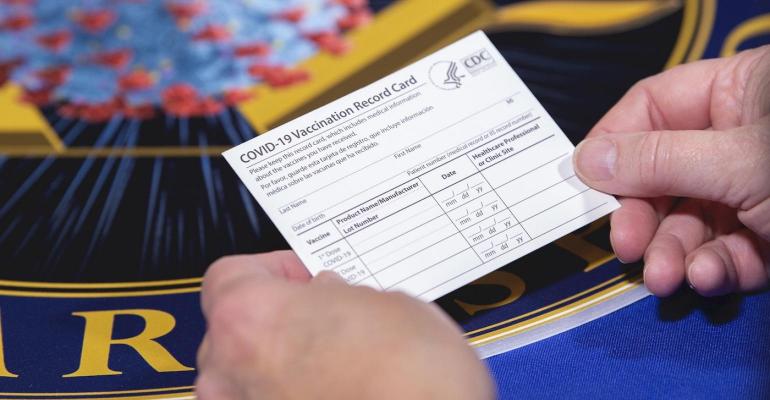Despite new guidance from the Equal Employment Opportunity Commission that lets employers require COVID-19 vaccinations in the workplace, restaurant operators face special challenges in rolling out such a mandate.
Employment lawyer Mary Leigh Pirtle of the Tennessee-based firm of Bass, Berry & Sims PLC said restaurant workplaces offer special conditions for mandatory COVID-19 vaccinations.
The EEOC on Dec. 16 updated its COVID-19 guidance in the wake of new vaccines that the Food and Drug Administration has given emergency use authorization over the past two weeks.
The Centers for Disease Control and Prevention, in a presentation released Sunday, recommended restaurant and other foodservice workers be included in round 1c of the COVID-19 vaccination distribution under the "other essential workers" category. The 1c category would make the second round of vaccinations, after healthcare workers, available to foodservice workers. No timeline was given.
“Restaurant operators should consider their particular situation in determining whether a COVID-19 vaccination should be mandatory, voluntary or a mixture of both,” Pirtle said in response to emailed questions. “There is no ‘one size fits all’ answer.”
Pirtle noted that restaurant employers first should weigh virus exposure risk among employees and the general population.
“For instance, servers, bartenders and hosts come into frequent contact with customers and are at a greater risk of exposure to COVID-19 than kitchen staff and cooks who may have little customer interaction,” she said.
“Further,” Pirtle said, “the restaurant setting itself has particular challenges because other less intrusive mitigating efforts, such as social distancing and mask wearing, are difficult, if not impossible, to achieve. These concerns should be weighed against the impact a mandatory vaccination policy may have on employee morale and retention.”
Pirtle said employees who are opposed to the vaccine may choose to terminate their employment rather than be vaccinated or may force the restaurant to fire the employee for failure to follow company policy.
“With respect to any employees represented by a union, vaccination policies may be governed by a collective bargaining agreement or be a mandatory subject of bargaining, so the employer may not have complete discretion,” she noted.
Employers who require employees to be vaccinated must allow for employees with certain medical conditions or sincerely held religious beliefs to request an exemption from the vaccine requirement by seeking a reasonable accommodation consistent with the Americans with Disabilities Act (ADA), Title VII of the Civil Rights Act and any related state or local laws, Pirtle noted.
“An employee’s objection to the vaccine based on the employee’s personal beliefs or fears will not qualify,” she said. “Employers will be required to consider all good faith requests for an accommodation to determine what, if any, reasonable accommodation from the vaccine requirement could be offered.
“Unlike some other industries, restaurants cannot simply accommodate employees with a work-from-home position,” she said. “Restaurants will have to instead consider whether any other reasonable accommodations can be offered without an undue burden to the company, such as an unpaid leave of absence, wearing an N95 mask, transferring the employee to a position that has less contact with customers, etc.”
If restaurant employers do make vaccinations mandatory, they also will have to determine how that would be implemented, Pirtle added.
“Employers will need to consider whether to actually administer those vaccinations or direct employees to seek out vaccines from a third party,” she said.
According to the new EEOC guidance, employers who provide vaccinations to employees should be careful to avoid pre-screening questions seeking genetic information or disclosure of disabilities so as not to run afoul of the ADA or Title II of the Genetic Information Nondiscrimination Act.
“If employers require proof of vaccination (as opposed to administering the vaccines) they should warn employees not to provide medical or genetic information as part of the proof,” Pirtle cautioned.
Law firm representatives noted that it might be prudent for the employer, if it requires COVID vaccines, to have employees get the vaccinations from pharmacies or their personal health care providers to avoid any medical inquiries.
Update Jan. 21, 2020: This story was updated with CDC information.
Contact Ron Ruggless at [email protected]
Follow him on Twitter: @RonRuggless





